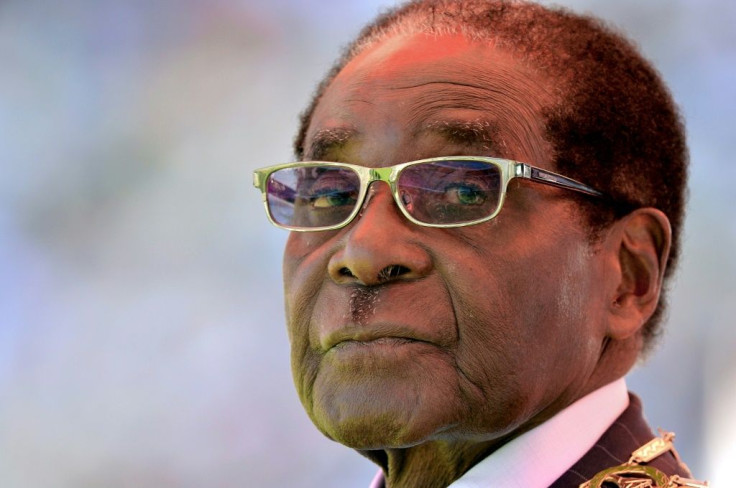Zimbabwe Sees Thaw In Chilly Ties With West

Zimbabwe's frosty relations with Western powers are thawing despite tensions caused by a brutal repression of protests, the country's foreign minister says.
Since the military-backed ouster of late ruler Robert Mugabe in November 2017, President Emmerson Mnangagwa's government has campaigned to re-engage internationally.
The European Union and the US had imposed sanctions -- including travel bans on Mugabe and his inner circle -- for violence, electoral fraud and undermining democracy.
Foreign Minister Sibusiso Moyo said the new government was making progress mending ties damaged under Mugabe, who died a week ago.
"Zimbabwe has been isolated for the past 20 years... and we cannot survive that way," Moyo told AFP at his offices in Harare on Friday.
"This government took over an economy which was sliding for the past 20 years and there had not been any investment activity within the state enterprises and even in the private sector."
During his nearly four-decade rule, Mugabe had become one of the world's most bitter critics of Western "imperialism" and an international pariah.
Mugabe's mismanagement helped push Zimbabwe's economy into crisis, and the country desperately needs investment and struggles with soaring inflation and shortages.
"Remove the sanctions, we do not deserve them," Mnangagwa said on Saturday.
Making reforms
Zimbabwe is carrying out reforms including repealing some much-criticised laws, such as the public order act and a law on access to information, to assuage Western concerns.
It is also opening up the country to foreign scrutiny, including inviting EU and US observers to last year's elections, and allowing access to foreign media.
"There is now what I will call a thawing of relations between ourselves and the UK, and similarly with Europe," he said. "I think we have progressed very well in terms of engagement."
He said the EU had "dramatically" reduced sanctions.
"That to me is a clear sign of acceptability."
European Commission spokeswoman Maja Kocijancic last January said the EU expected Zimbabwe to uphold human rights and the rule of law before any progress.
"Zimbabwe's efforts to promote investment and to deepen international partnerships can only be successful if these essential requirements are fulfilled," he said.
US President Donald Trump in March prolonged sanctions, first imposed in 2003, on more than 100 individuals and entities -- including President Emmerson Mnangagwa.
Moyo said government had begun talks with the US government despite their differences.
The minister also said an IMF monitoring team was visiting Zimbabwe, a move he said was one step towards more international investment.
But the efforts to fix relations with the West after decades of isolation have been tainted by events over the past year including the post election violence which claimed six lives in August 2018.
A wave of anti-government protests in January after a fuel price hike also left at least 17 people dead, rights groups say.
Moyo described the incidents as "unfortunate and regrettable", saying the government was discussing recommendations of an enquiry into the August violence.
The international community exerted intense pressure on the late Mugabe over human rights abuses after the violent occupation of white-owned farms two decades ago.
The tensions escalated further with violence against the opposition during the 2002 elections when the Mugabe regime kicked out EU observers ahead of a presidential vote.
© Copyright AFP 2024. All rights reserved.





















